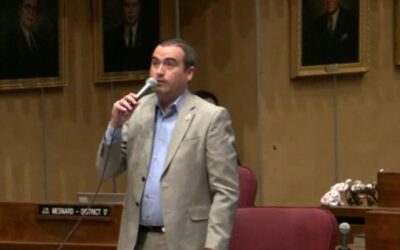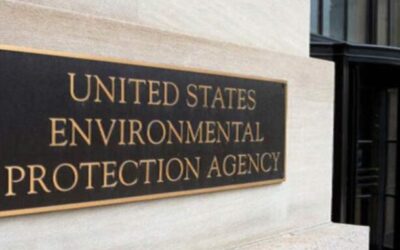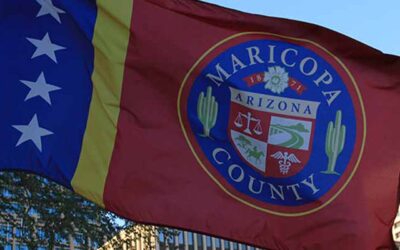By Corinne Murdock |
The special advisor to the president for Arizona State University (ASU) said that universities can achieve their diversity goals despite the Supreme Court (SCOTUS) ruling against affirmative action last month.
The special advisor, Jeffrey Selingo, said in an interview with KJZZ last week that the SCOTUS ruling meant that universities would have to get creative with achieving diversity in admissions.
“Now the question is how to achieve that [diversity], and during the admissions process previous to this decision, they could use race as a factor — so there was a little thumb on the scale, per say,” said Selingo. “But now they won’t be able to do that. So now they’re going to have to look at other parts of the process that they still have control over where, maybe, race doesn’t come into being, but where they could control the ultimate outcome.”
Selingo then clarified that this process would likely involve manipulating the applicant pool to yield better diversity picks. He gave one example as universities partnering with high schools in minority communities.
“If you focus on and target schools in certain areas and certain communities, you’re more likely to have students of color applying,” said Selingo.
Selingo added that the COVID-19 pandemic practice of waiving of standardized testing — namely the SAT and ACT — during the admissions process enhanced diversity quotas. He predicted that universities wouldn’t require these tests in the future for that reason. ASU, along with UArizona and NAU, were among those universities that ceased requiring the ACT and SAT for admission.
“Many of [the universities] saw much more diverse applicant pools as a result. So it’s very unlikely that schools will go back to requiring the tests as a result,” said Selingo.
The avoidance of test scores as a factor would also mean that aggrieved individuals would have a harder time proving discrimination.
“Without test scores now, it’s going to be more difficult for plaintiffs to prove discrimination. They’ve used test scores in the past cases because they could say, ‘You denied somebody with a 1550 [SAT score] and accepted someone with a 1200,” said Selingo. “I’m not saying colleges won’t comply with the law, but there’s a lot of ambiguity, let’s say, in the admissions process, and I don’t think this is going to make it any clearer.”
As special advisor for innovation, Selingo works directly with President Michael Crow on new product design and initiatives in online education, lifelong learning, and partnerships with private companies and universities.
Selingo’s confidence that universities can achieve diversity in admissions despite the SCOTUS ruling contradicted his prediction in his 2020 bestseller “Who Gets In & Why: A Year Inside College Admissions,” in which he expressed the belief that a SCOTUS decision striking down affirmative action would hinder holistic admissions and require greater transparency.
“Giving students the opportunity to learn from peers is a major benefit of a college education, one that will be even more important to students once they graduate and enter a diverse workforce. That’s why Fortune 500 CEOs largely back race-conscious admissions policies as an economic necessity,” wrote Selingo. “Any future court decision that strikes down affirmative action could also put limits on holistic admissions. That likely would force schools, for the first time in more than a century, to move to a more transparent set of academic measures in admitting students.”
At the time, Selingo did note that universities precluded from using race in admissions, citing the University of Washington specifically, rely on holistic “personal score” factors to ensure diversity, like socioeconomic status, hardships, income, and whether or not the applicant is the first in their family to attend college.
Selingo cited the research presented in “The Chosen” by Jerome Kabel, which revealed how colleges first developed holistic admissions as a means of countering academic merit and thereby limiting the admission of Jewish students.
Although Selingo is based out of Washington, D.C, he’s also a professor of practice and leads ASU’s Academy for Innovative Higher Education Leadership, a partnership with Georgetown University. Selingo is also a contributor to The Atlantic and co-host to the podcast “FutureU.”
In response to the SCOTUS ruling, the Arizona Board of Regents said in a statement from its chair, Lyndel Manson, that they didn’t believe Arizona universities’ admissions would be impacted.
“The admission standards set by the Arizona Board of Regents for Arizona’s public universities are based solely on academic performance,” said Manson. “The board is proud that each of Arizona’s public universities are Hispanic Serving Institutions and student enrollment continues to grow in diversity. We are reviewing the decision of the U.S. Supreme Court but do not anticipate any impact at our universities.”
ASU said that the decision wouldn’t impact the diversity of its student body or its commitment to having its student body reflect the population of the state.
“Because ASU admits all students who meet the university’s admission requirements and does not artificially cap enrollment for students from Arizona, ASU will continue to have one of the most diverse student bodies in the country,” said ASU.
In 2010, Arizona voters approved the Arizona Civil Rights Initiative, or Prop 107, which prohibited discrimination and preferential treatment based on race, sex, and skin color.
Corinne Murdock is a reporter for AZ Free News. Follow her latest on Twitter, or email tips to corinne@azfreenews.com.








